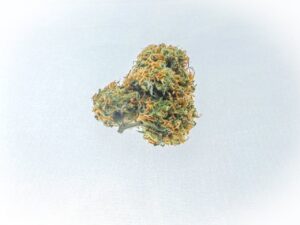Unravel the mysteries of THC and its impact with the ultimate guide to understanding THC and its effects, recreational cannabis users, cannabis plants, dried marijuana flower, and cannabinoid hyperemesis syndrome. Explore the intricacies of this compound, diving into its origins, properties, and how it interacts with the human body. From its psychoactive effects to potential therapeutic benefits, this comprehensive guide sheds light on all aspects of THC, CBD, the cannabis plant, drug, and research. Whether you are a newcomer seeking knowledge or a seasoned user looking to deepen your understanding, this guide offers detailed insights into the world of THC.
Discover how THC influences cognition, mood, and physical sensations, providing a nuanced perspective on its effects. Gain a deeper appreciation for this widely discussed compound as we navigate through its science and implications. Elevate your awareness and knowledge about THC through this informative journey.
Table of Contents
ToggleTHC Overview and History
Origins
THC, short for tetrahydrocannabinol, has a rich history dating back centuries. Originally found in cannabis plants, it was used for various purposes by ancient civilizations. The first recorded use of cannabis dates back to around 500 BC in Central Asia.
The ancient Chinese were among the first to discover the potent properties of THC. They utilized cannabis, including CBD, for medicinal purposes, recognizing its ability to alleviate pain and induce relaxation in patients undergoing chemotherapy and experiencing nausea. Over time, the knowledge of THC spread to other regions like India and the Middle East.
Evolution
As civilizations evolved, so did the consumption methods of THC. In ancient times, cannabis was primarily consumed through smoking or oral ingestion. However, with technological advancements, new methods such as vaporization and edibles emerged.
In the 20th century, the discovery of THC’s psychoactive effects led to the development of more concentrated forms such as hashish and hash oil. These potent derivatives revolutionized the way THC was consumed, providing users with stronger and more immediate effects.
Historical Significance
The historical significance of THC is profound. During the 1960s and 1970s, THC became synonymous with counterculture movements and recreational drug use. This era marked a shift in societal attitudes toward cannabis, leading to widespread legalization efforts in recent years.
Moreover, THC plays a crucial role in the field of medicine. Researchers discovered its potential therapeutic benefits for conditions like chronic pain, nausea, and epilepsy. This breakthrough paved the way for medical marijuana programs in various countries across the globe.
Understanding Cannabinoids
Role in the Human Body
Cannabinoids, including important cannabinoids like THC, CBD, and CBC, play a crucial role in the human body by interacting with the endocannabinoid system. This system regulates various physiological processes such as mood, memory, pain sensation, and appetite. When cannabinoids bind to receptors in the endocannabinoid system, they can modulate these functions.
CBD, known for its non-psychoactive properties, differs from THC in that it does not induce a “high.” On the other hand, THC is famous for its psychoactive effects. The distinction lies in how these compounds interact with the endocannabinoid receptors in the body. While CBD has a more subtle impact on these receptors, THC binds strongly to produce its characteristic euphoric effects.
Differentiation of Cannabinoids
The main difference between THC and other cannabinoids lies in their psychoactive properties. THC is the primary psychoactive compound found in cannabis, responsible for inducing feelings of euphoria or being “high.” In contrast, CBD, another well-known cannabinoid, does not have intoxicating effects. It’s valued for its potential therapeutic benefits without altering one’s state of mind.
Entourage Effect
The entourage effect refers to the synergistic interaction between different compounds present in cannabis when consumed together. This phenomenon suggests that cannabinoids like THC and CBD may have enhanced effects when combined rather than used individually. For example, combining THC with CBD might result in a more balanced and potent therapeutic outcome due to their complementary interactions within the body.
Debunking Myths and Misconceptions about THC
Consumption Methods
THC, commonly associated with marijuana, can be consumed through various methods such as smoking, vaping, edibles, and tinctures. Each method affects the body differently.
Edibles take longer to kick in compared to smoking or vaping due to the digestive process. On the other hand, smoking or vaping provides quicker effects as THC directly enters the bloodstream through the lungs.
THC vs. CBD
One common misconception is that THC and CBD are the same. However, they are distinct compounds with different effects on the body. While THC is psychoactive and produces a “high,” CBD is non-psychoactive and offers therapeutic benefits without intoxication.
People often mistakenly believe that all cannabinoids, including THC, have addictive properties. In reality, THC itself isn’t physically addictive like substances such as nicotine or opioids.
Addiction Myths
Contrary to popular belief, THC addiction is more psychological than physical. Individuals may develop a psychological dependence on the euphoric effects of THC but not experience physical withdrawal symptoms like with other addictive substances.
Misinformation regarding THC addiction often stems from associating it with dependency issues seen in other drugs. However, studies show that while heavy cannabis use can lead to tolerance and psychological dependence, true addiction is rare.
THC Interaction with the Body
Endocannabinoid System
THC interacts with the endocannabinoid system in the human body, specifically by binding to cannabinoid receptors. These receptors are found throughout the body, including the brain, immune system, and peripheral nervous system. When THC binds to these receptors, it can alter various physiological functions.
THC’s interaction with the endocannabinoid system can lead to a range of effects, both therapeutic and psychoactive. For example, THC’s ability to bind to cannabinoid receptors in the brain can result in changes in mood, memory, and pain perception.
Psychoactive Effects
One of the most well-known effects of THC is its psychoactive properties. By binding to cannabinoid receptors in the brain, particularly in areas associated with cognition and pleasure, THC can induce feelings of euphoria or a “high.” This alteration in brain function can also lead to changes in perception, coordination, and concentration.
The psychoactive effects of THC vary from person to person based on factors such as individual tolerance levels, dosage consumed, and mode of consumption. Some individuals may experience heightened sensory perception or relaxation, while others may feel anxious or paranoid.
Impact on Neurotransmitters
THC’s impact on neurotransmitters plays a crucial role in its effects on the nervous system. By influencing the release of neurotransmitters such as dopamine and gamma-aminobutyric acid (GABA), THC can modulate communication between neurons. This modulation can result in altered mood states, increased relaxation, or changes in cognitive function.
The interaction between THC and neurotransmitters highlights the complex ways in which this drug affects brain function. While some individuals may find relief from symptoms such as pain or nausea due to THC’s influence on neurotransmitters, others may experience negative side effects like impaired memory or coordination.
Managing THC Consumption
Safe Consumption
Recreational cannabis users can ensure safe cannabis consumption by starting with low doses and gradually increasing them to find their optimal level. This approach helps minimize the risk of overconsumption and potential negative effects.
To further enhance safety, individuals should be aware of the dosage of THC in different products. Understanding the mg of THC per serving is crucial for recreational users to control their drug administration effectively.
Dosage Considerations
When it comes to managing THC consumption, individuals need to consider factors such as their tolerance levels, body weight, and experience with cannabis. These aspects play a significant role in determining the appropriate dosage for each person.
Moreover, individuals undergoing chemotherapy should consult with healthcare professionals before using THC products. Proper guidance on dosage and administration can help alleviate symptoms without adverse effects.
Responsible Practices
Responsible cannabis consumption involves consuming THC products in a safe environment and avoiding activities that require full attention, such as driving or operating machinery. Recreational users must prioritize their well-being and that of others when using cannabis.
Storing THC products securely away from children and pets is vital for maintaining a safe environment. Proper storage not only prevents accidental ingestion but also ensures the longevity of the product’s potency.
Immediate and Long-Term Effects
Immediate Effects
When THC is consumed, it swiftly enters the bloodstream through the lungs or digestive system. Within minutes, users may experience a range of psychological effects such as altered perception, mood changes, and impaired memory. These immediate impacts are primarily due to THC’s interaction with the brain’s cannabinoid receptors.
Moreover, THC can induce psychoactive effects, leading to feelings of euphoria or relaxation. Some users also report experiencing heightened sensory perception or increased appetite shortly after consumption. These effects typically peak within 30 minutes to an hour and can last for several hours.
Long-Term Effects
While immediate effects are noticeable shortly after consuming THC, long-term use can lead to various consequences. Prolonged exposure to THC has been linked to potential risks such as cognitive impairment, respiratory issues, and addiction. Chronic usage may result in memory problems, decreased motivation, and difficulty in learning new information.
Furthermore, heavy and prolonged THC consumption has been associated with an increased likelihood of developing mental health disorders like anxiety and depression. Individuals with pre-existing mental health conditions may experience exacerbated symptoms with long-term use. It is crucial to consider these long-term implications before engaging in regular THC consumption.
Risks of Heavy Consumption
Heavy consumption of THC poses significant risks to overall health and well-being. Excessive intake can lead to adverse effects on physical health, including respiratory irritation from smoking or vaping methods. Individuals who consume high doses of THC regularly may develop a tolerance, requiring larger amounts to achieve the desired effects.
Moreover, heavy THC usage can have detrimental effects on mental health by increasing the likelihood of developing anxiety disorders or experiencing paranoia. Individuals need to be aware of these risks and exercise moderation when using products containing THC.
Influential Factors on THC Effects
Individual Differences
Individual differences play a crucial role in THC sensitivity. Factors such as genetics, metabolism, and body weight can impact how a person responds to THC. For example, individuals with certain genetic variations may experience stronger psychoactive effects from THC compared to others.
Moreover, an individual’s tolerance level significantly influences how they respond to THC over time. Regular cannabis users often develop tolerance, requiring higher doses to achieve the same effects. This phenomenon can lead to increased consumption and potential long-term consequences on health.
Environmental Factors
Different things around you can change how THC makes you feel. Where you are when you use cannabis can make a big difference. If you use THC in a calm and familiar place, you might have a better experience than if you use it in a stressful or new place. Also, being with friends who use cannabis can affect how you see and react to THC. Some people might enjoy using cannabis more when they are with others who also use it, but for some people, it might make them feel nervous or uneasy.
Impact of Consumption Method
The method of consuming THC, whether through smoking, vaping, or edibles, can have varying effects on an individual’s experience. Smoking cannabis leads to rapid absorption into the bloodstream, resulting in a quicker onset of effects but shorter duration compared to edibles, which take longer to kick in but offer a more prolonged high.
Moreover, the potency of the cannabis strain being used also plays a crucial role in determining the intensity of THC effects. Strains with higher levels of THC are likely to produce stronger psychoactive properties compared to those with lower concentrations.
Terpenes in Cannabis
Role
Terpenes, found in cannabis plants, are aromatic compounds responsible for the distinct smells and flavors of different strains. These compounds also play a crucial role in providing various therapeutic benefits to users.
Terpenes contribute to the overall entourage effect experienced when consuming cannabis products. This phenomenon occurs when terpenes interact with THC and other cannabinoids, enhancing their effects and creating a more potent experience for users.
Synergistic Effects
The interaction between terpenes and THC can result in a wide range of effects on the body and mind. For example, the terpene myrcene, commonly found in sativa strains, is known for its sedative properties, which can complement the relaxing effects of THC.
Moreover, limonene, another prevalent terpene, has been associated with elevated mood and stress relief. When combined with THC, limonene can enhance these effects, leading to a more uplifting and euphoric experience for consumers.
Popular Terpenes
- Myrcene: Known for its earthy and musky aroma, myrcene is found in high concentrations in indica strains. This terpene is believed to have anti-inflammatory and pain-relieving properties.
- Limonene: With a citrusy scent, limonene is commonly present in strains like Lemon Haze. It is thought to have anti-anxiety and antidepressant effects.
- Pinene: As the name suggests, pinene has a pine-like aroma and can be found in strains such as Jack Herer. This terpene is associated with improved focus and respiratory benefits.
THC and Society
Societal Attitudes
THC, the active substance in cannabis, has faced varying societal attitudes over time. Initially stigmatized, it’s now gaining acceptance for its medicinal benefits.
In the past, many viewed THC as a harmful substance, associating it with negative effects. However, recent research highlighting its therapeutic properties has shifted societal attitudes positively.
Legal Status
In the United States, the legal status of THC differs among states. While some have legalized it for medical or recreational use, others maintain strict regulations.
States like Colorado and California have legalized THC for recreational purposes, leading to economic growth and increased tax revenue. On the other hand, states like Idaho continue to enforce strict bans on its usage.
Cultural Significance
The consumption of THC holds significant cultural value in various communities. For example, in certain indigenous tribes, it plays a crucial role in spiritual ceremonies and rituals.
Moreover, the emergence of “cannabis culture” has influenced art, music, and fashion trends globally. Icons like Bob Marley have popularized THC consumption as a symbol of rebellion and freedom.
Medical Benefits of THC
Therapeutic Properties
THC, a compound found in cannabis, possesses remarkable medicinal properties. It is known for its ability to provide pain relief and alleviate symptoms of various medical conditions. Studies have shown that THC can effectively reduce nausea in patients undergoing chemotherapy.
Medical Treatments
In the realm of medical treatments, THC plays a crucial role in managing chronic pain, especially for individuals suffering from conditions like multiple sclerosis or arthritis. Its analgesic properties make it a valuable component in pain management strategies.
Research Supporting Medical Benefits
Recent research has shed light on the numerous medical benefits of THC. Studies indicate that it can help improve the quality of life for patients with chronic pain, providing them with much-needed relief. THC has shown promise in treating mental health disorders such as anxiety and depression.
Summary
The comprehensive exploration of THC and its effects sheds light on its intricate interactions within the human body, debunking prevalent myths while highlighting its medical benefits. Understanding cannabinoids, managing consumption, and recognizing influential factors are crucial in navigating THC’s immediate and long-term impacts. Terpenes in cannabis play a significant role, in shaping the overall experience and effects of THC consumption. Moreover, the societal perception and acceptance of THC continue to evolve as more research uncovers its potential benefits.
For a well-rounded understanding of THC, individuals are encouraged to delve deeper into the nuances of cannabinoid science, stay informed about current research findings, and approach THC consumption with mindfulness and responsibility. By fostering a knowledgeable and informed approach towards THC, one can make informed decisions regarding its utilization for both recreational and medicinal purposes.
Frequently Asked Questions
1. What is THC and its historical significance?
THC, or tetrahydrocannabinol, is a psychoactive compound in cannabis. Its discovery in the 1960s by Raphael Mechoulam revolutionized cannabinoid research, leading to a deeper understanding of cannabis’s effects on the human body.
2. How do cannabinoids interact with the body’s endocannabinoid system?
Cannabinoids like THC bind to receptors in the endocannabinoid system, influencing various physiological processes. This interaction can affect mood, memory, pain sensation, and appetite regulation among other functions in the body.
3. How can one manage THC consumption responsibly?
Responsible THC consumption involves starting with low doses to gauge individual tolerance levels, understanding product potency, avoiding mixing substances, and being mindful of potential side effects like impaired coordination or cognitive function.
4. What are some immediate and long-term effects of THC consumption for recreational cannabis users?
Immediate effects of THC may include altered perception, relaxation, and increased heart rate. Long-term use can lead to dependency issues, cognitive impairment in heavy users, respiratory problems from smoking, and potential mental health impacts.
5. How do terpenes contribute to the overall effects of THC?
Terpenes are aromatic compounds in cannabis that work synergistically with cannabinoids like THC to produce unique effects known as the entourage effect. Different terpenes can enhance or alter the overall experience by influencing taste, aroma, and therapeutic benefits.
Are You Searching For Top-Quality THC Products In Sacramento?
Look no further than A Therapeutic Alternative, a distinguished dispensary leading the charge in advocating for the rights of medical cannabis consumers for over a decade. We are more than just a dispensary; we are a dedicated team committed to enhancing your health and wellness journey with the therapeutic benefits of THC. Perfectly situated in the heart of Midtown Sacramento, close to the medical district, our location is designed for your utmost convenience. Experience our dedication to offering the finest THC products and unmatched service as soon as you enter our welcoming space.
We prioritize accessibility, ensuring our facilities are fully equipped to meet your needs. With an ADA lift and multiple parking options, including a dedicated lot behind our establishment and complimentary street parking, your visit will be seamless and stress-free. Become part of a community that values happiness and wellness through the responsible use of THC. Explore the wide range of THC products in Sacramento at A Therapeutic Alternative, or check out our online inventory. Visit us today and start your journey to holistic health with our supportive team guiding you every step of the way!




